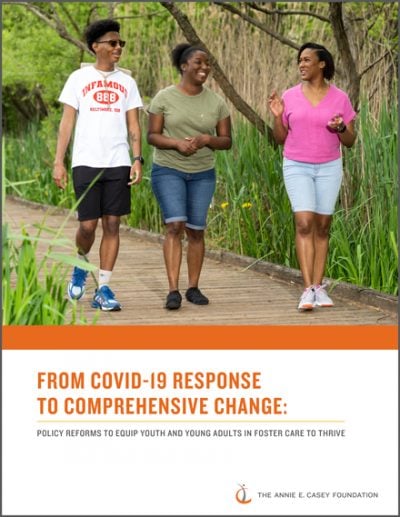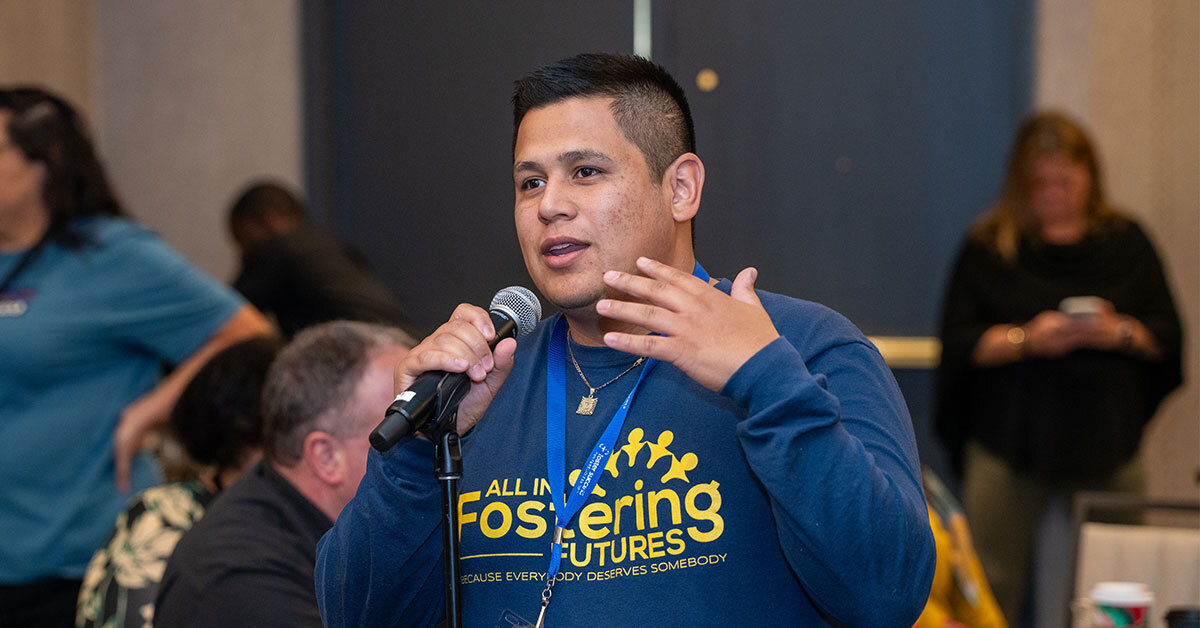Summary
This brief highlights historical federal child welfare policy achievements and urges policymakers to champion new reforms that promote lasting benefits for all young people in and transitioning from foster care.
Pandemic-Relief Provisions Make an Impact
The document opens by calling on Congress to build on the important, but temporary, changes mandated by the Supporting Foster Youth and Families Through the Pandemic Act. This act offers continuous and comprehensive support that all young people deserve on an ongoing basis — not just during emergencies. For instance, it gives state agencies a threefold funding increase via the John H. Chafee Foster Care Program for Successful Transition to Adulthood, which directs significant federal resources to serving youth and young adults.
Federal Policy Reform Recommendations
The Casey Foundation advises federal policymakers to act quickly to extend these pandemic-relief resources and build a comprehensive approach that can better support all young people and their lifelong success. Advancing such an approach will involve:
- prioritizing permanent family connections and overall well-being for youth in foster care by requiring agencies to establish adolescent and young adult services divisions;
- improving access to housing and other resources for young adults, while continuing to prioritize family connections, by making extended foster care universally available to youth in all states;
- adding pathways to success by expanding and improving the Chafee program’s supportive services for young people; and
- generating strategies that are tailored to the unique needs of different youth — including young people of color and young parents — to ensure that no one falls behind.
An Opportunity Worth Seizing
The Foundation closes its brief by recognizing Congress and its steadfast commitment to improving the odds for youth and young adults in foster care. It notes that federal policymakers have a tremendous opportunity to enact lasting reforms that can address inequities, accelerate effective solutions and offer child welfare agencies the capacity and guidance needed to improve how young people receive services and achieve permanency, healing and economic security.







